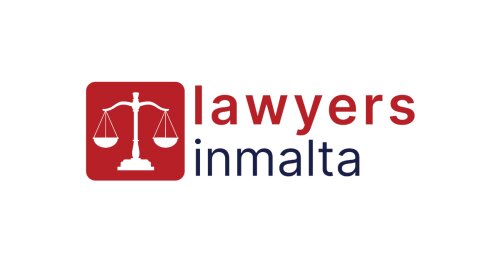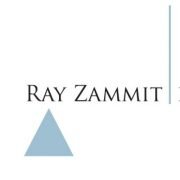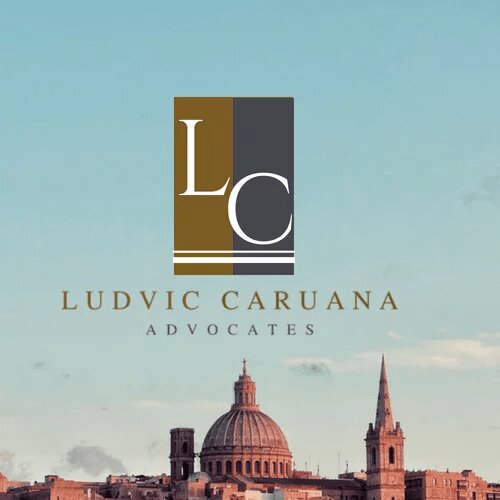Best Constitutional Law Lawyers in Valletta
Share your needs with us, get contacted by law firms.
Free. Takes 2 min.
List of the best lawyers in Valletta, Malta
About Constitutional Law in Valletta, Malta
Constitutional Law in Valletta, Malta, is centered around the principles and provisions set forth in the Maltese Constitution, which serves as the supreme law of the country. It governs the structure and functioning of the government, defines the relationship between the state and individuals, and ensures the protection of fundamental human rights and freedoms. Constitutional Law addresses issues such as the separation of powers, judicial review, and the protection of civil liberties.
Why You May Need a Lawyer
There are several situations where you might require legal assistance in the field of Constitutional Law:
- Human Rights Violations: If you believe your fundamental rights, such as freedom of speech, assembly, or privacy, have been infringed upon.
- Constitutional Challenges: Contesting a law or governmental action that you believe is unconstitutional.
- Electoral Disputes: Issues related to the fairness and conduct of elections.
- Public Law Matters: Cases involving the actions of public authorities that may affect your rights.
- Civil Liberties: If you are facing discrimination or other actions that infringe on your civil liberties.
Local Laws Overview
Understanding the key aspects of local laws relevant to Constitutional Law in Valletta, Malta is essential:
- The Constitution of Malta: This is the central document that lays down the fundamental legal framework of the state, including the protection of human rights and the organization of governmental powers.
- The European Convention Act: Incorporates the European Convention on Human Rights into Maltese law, allowing individuals to bring human rights claims in local courts.
- Judicial Review: The process through which Maltese courts oversee the legality of actions taken by public authorities. This includes scrutiny of administrative decisions to ensure conformity with the Constitution.
- Data Protection Act: Governs the handling of personal data and aligns with EU law under the General Data Protection Regulation (GDPR).
- Electoral Law: Pertains to the regulations governing the conduct of elections, aimed at ensuring fairness and transparency in the electoral process.
Frequently Asked Questions
What is Constitutional Law?
Constitutional Law refers to the body of law that interprets and applies the Constitution, governing the roles and powers of the institutions of government and the fundamental rights of the citizens.
How does the Constitution of Malta protect human rights?
The Constitution of Malta enshrines various human rights and fundamental freedoms, including the right to life, freedom of speech, freedom of assembly, and protection from discrimination.
Can I challenge a law that I believe is unconstitutional?
Yes, individuals can challenge the constitutionality of a law by filing a legal action in the Maltese courts, which have the power to review and strike down legislation that is found to be unconstitutional.
What is the role of the European Convention on Human Rights in Malta?
The European Convention on Human Rights forms part of Maltese law under the European Convention Act, and individuals can bring claims related to their human rights under this convention in Maltese courts.
What is judicial review?
Judicial review is the process by which courts examine the actions of public authorities to ensure they comply with the Constitution and other laws. This serves as a check on governmental power.
How do I file a human rights complaint?
You can file a human rights complaint through the Maltese courts, or in some cases, take your complaint to the European Court of Human Rights if domestic remedies have been exhausted.
What are my rights during an election period?
Constitutional and electoral laws protect various rights during elections, including the right to vote, freedom of expression, and the right to free and fair elections.
How can a lawyer help in constitutional matters?
A lawyer specializing in Constitutional Law can provide legal advice, represent you in court, help draft legal challenges, and ensure your rights are protected under the Constitution.
What is the Data Protection Act?
The Data Protection Act regulates the processing of personal data, ensuring that individuals' data privacy rights are protected in line with GDPR principles.
Can I seek legal recourse if my civil liberties are violated?
Yes, if your civil liberties are violated, you can seek redress through the Maltese courts, which have the authority to protect and enforce your constitutional rights.
Additional Resources
For further information or assistance, the following resources and organizations may be helpful:
- Office of the Attorney General: Provides legal advice to the government and represents it in legal matters.
- The Courts of Justice of Malta: The judicial institution where constitutional and human rights issues are adjudicated.
- The Malta Human Rights Commission: An organization that works to promote and protect human rights in Malta.
- The European Court of Human Rights: For claims related to violations of the European Convention on Human Rights after exhausting domestic remedies.
- Legal Aid Malta: Provides legal assistance to those who cannot afford private legal services.
Next Steps
If you need legal assistance in Constitutional Law, consider the following steps:
- Consult a Lawyer: Contact a lawyer who specializes in Constitutional Law to discuss your case and receive professional legal advice.
- Gather Documentation: Collect any relevant documents and evidence related to your case to present to your lawyer.
- File a Complaint: If applicable, file a complaint with the appropriate court or legal body.
- Seek Legal Aid: If you cannot afford a lawyer, explore options for obtaining legal aid.
- Stay Informed: Keep yourself informed about your rights and legal processes by utilizing available resources and organizations dedicated to constitutional rights and legal assistance.
Lawzana helps you find the best lawyers and law firms in Valletta through a curated and pre-screened list of qualified legal professionals. Our platform offers rankings and detailed profiles of attorneys and law firms, allowing you to compare based on practice areas, including Constitutional Law, experience, and client feedback.
Each profile includes a description of the firm's areas of practice, client reviews, team members and partners, year of establishment, spoken languages, office locations, contact information, social media presence, and any published articles or resources. Most firms on our platform speak English and are experienced in both local and international legal matters.
Get a quote from top-rated law firms in Valletta, Malta — quickly, securely, and without unnecessary hassle.
Disclaimer:
The information provided on this page is for general informational purposes only and does not constitute legal advice. While we strive to ensure the accuracy and relevance of the content, legal information may change over time, and interpretations of the law can vary. You should always consult with a qualified legal professional for advice specific to your situation.
We disclaim all liability for actions taken or not taken based on the content of this page. If you believe any information is incorrect or outdated, please contact us, and we will review and update it where appropriate.
















